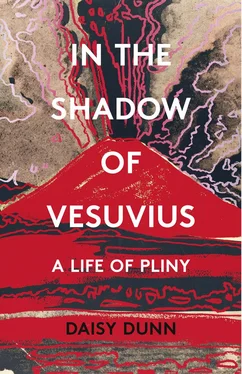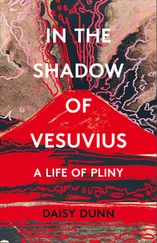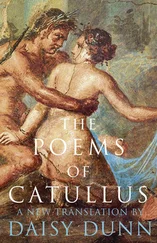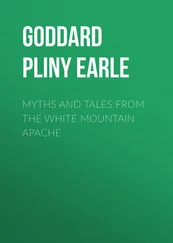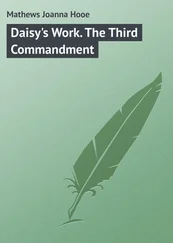Pliny and his mother were further away from the volcano and better placed to escape. By daybreak, the earthquakes at Misenum had become so severe that they threatened to bring the villa down on top of them, and they quickly decided to leave the town. As mother and son made their way through the streets they found themselves followed by a crowd, ‘favouring someone else’s plan to their own, which in moments of fear is akin to prudence’. 38Crowd mentality steered the refugees clear of the falling buildings and into the possibility of safety.
Pliny and his mother proceeded by carriage. They were joined by one of Pliny the Elder’s friends who had recently come to visit from Spain. As the earth tremored, they darted one way then another, their vehicles twisting and turning. Over the course of their journey, they witnessed scenes which defied explanation. The sea seemed to ‘be absorbed back into itself and sort of be pushed back by the earthquake’, leaving a trail of marine life stranded in its wake. 39This was either the beginning of a tsunami or simply a further effect of the force of the earthquakes. Inland, meanwhile, ‘a terrifying black cloud, burst by twisting, quaking flickers of flame, began to gape to show long fiery tongues, like lightning, only bigger’. The cloud descended upon the earth and covered the sea until neither the island of Capri, nor even the promontory of Misenum itself, was visible on the horizon. Ash began to fall, only lightly, and hardly noticeable at all against the thick gloom that pressed them from behind, spreading over the earth like a torrent. Pliny did not know it, but the cloud was very probably the edge of the nuée ardente that had already killed his uncle at Stabiae. 40Pliny the Elder’s friend urged Pliny and his mother on before fleeing the danger himself: ‘If your brother, if your uncle, is alive, he would want you to be safe; if he has died, he would have wanted you to survive him. So why do you hesitate in your escape?’
There was now little time. Pliny’s mother begged – ordered – her son to leave her behind, knowing she would slow him. She told him that she was ‘heavy in years and body and could die happy, if only she was not the cause of [his] death’. 41Reflecting on this moment, Pliny thought of Virgil and his description of the fall of Troy. In the poem, Aeneas’ wife, Creusa, follows behind him as they make their escape. By the time Aeneas reaches safety, she has gone.
Pliny’s mother stayed close by him as the ash fell. He took her firmly by the hand so as not to repeat Aeneas’ mistake. Leaving the carriages behind, they hurried on by foot while there was still enough light to see. At Pliny’s suggestion they left the main path so as not to be trampled by the crowd in the darkness. At one point they paused to rest and the cloud made night of day.
This day, which had struck the people at Stabiae as blacker than any night they had ever experienced, seemed to Pliny ‘not so much a moonless or cloudy night, but as if the lamp had gone out in a locked room’. He might still have been in his study had it not been for the screaming:
You could hear the wailing of women, the cries of babies, the shouting of men. Some were calling for their parents, others for their children, others for their partners, trying to make out their voices. Some wept for their own fate, others for those of their relations. There were some who prayed for death through fear of death. Many raised their hands to the gods; more reasoned that there were now no gods anywhere and that the night would last forever and ever across the universe. 42
Was this the end of the world? Was this the ekpyrosis the Stoic philosophers feared, the fire that closed one life cycle and opened another? Was this the moment ‘Titan Sun casts out day’ and ‘a kind of death and chaos overcomes/ all the gods together and/ death sets itself upon itself …?’ 43
Pliny’s uncle had feared the coming of the conflagration. He had noticed that sons were now shorter than their fathers and taken this as a sign that the human seed had begun to dry in the approaching flame. 44If anyone needed proof of how dramatic the shrivelling of man had been, then he provided it in his description in his encyclopaedia of an ancient corpse measuring twenty metres tall that had been uncovered in a mountain on Crete. Split open during an earthquake, the mountain appeared to have yielded the body of a giant. Some believed it was Orion, whom Jupiter, king of the gods, placed in the sky as a constellation. Others said it was the remains of Otus, son of Neptune. But could it not have been human? The body of mortal Orestes, son of Agamemnon, had already been exhumed and measured at over three metres tall. fn3
Pliny the Elder had resorted to myth to explain the inexplicable and now the younger Pliny imagined himself inhabiting epic. The desperate women and infants of Campania were like the souls of the Virgilian Underworld. Pliny was Aeneas, who in Virgil’s poem is surrounded by the ‘overwhelming sound of wailing/ and weeping spirits of infants, whom the black day/ stole away, ripping them from the breast at the very threshold/ of sweet life, and plunged into bitter death’. 45He was in a living hell. He was not even particularly close to the volcano. He could only have imagined the depths of hell others had now entered. Pliny was as much a visitor to Misenum as Aeneas was to the Underworld. If only his escape could be as easy.
The people of southern Italy were not alone in their fear. The effects of the eruption were felt thousands of kilometres away, ‘the amount of dust so great, all in all, that some reached Africa and Syria and Egypt, and some reached Rome, and filled the air above and cast the sun in shade’. 46This dust would later spread ‘sickness and terrible pestilence’ among the survivors. Its sudden appearance overhead was bewildering, even to the people of Rome, who ‘did not know and could not imagine what had happened, but considered that everything had been turned upside down, and that the sun was vanishing into the earth, and the earth being raised to the heavens’. 47Some spoke of giants in the darkness, or spread false stories of the extent of the destruction. Others merely panicked. Pliny and his mother carried on, shaking themselves free of the ash that settled on their shoulders to avoid being ‘smothered and overcome by its weight’. 48Unlike so many of the people around him, Pliny did not cry, because even in these dire moments he could reason, and in reasoning, he found something close to belief. His belief became his consolation when he told himself, ‘Everything is dying with me, and I am dying with it.’
It was a few days before the darkness lifted. As it did, there was a glimmer of sunlight and Pliny’s vision was restored. His first impression, upon turning back to Misenum with his mother to await news of his uncle, was that ‘Everything had changed, buried deep in ash as if in snow.’ 49
Paper is made from papyrus that is cut into strips with a needle so as to be as wide as possible but very fine … Every sheet is woven on a board dampened with water from the Nile. The muddiness of the liquid serves as a glue.
Pliny the Elder, Natural History , Book 13
There was a time when it was thought there was only one Pliny, a curious conflation of the Elder, who died in the eruption of Vesuvius in AD 79, and the Younger, who survived it. The most important contribution the elder Pliny had made to history was his multi-volume encyclopaedia . The Natural History was astonishing for its breadth. Believing that ‘no book is so bad that there is nothing to be taken from it’, Pliny the Elder had crammed facts from as many as 2,000 different volumes into its pages, citing the research of Greek and Roman geographers, botanists, doctors, obstetricians, artists, and philosophers. 1Offering observations on everything, from the moon, to elephants, to the efficacy of ground millipedes in healing ulcers, Pliny the Elder had left behind an indispensable compendium of knowledge.
Читать дальше
